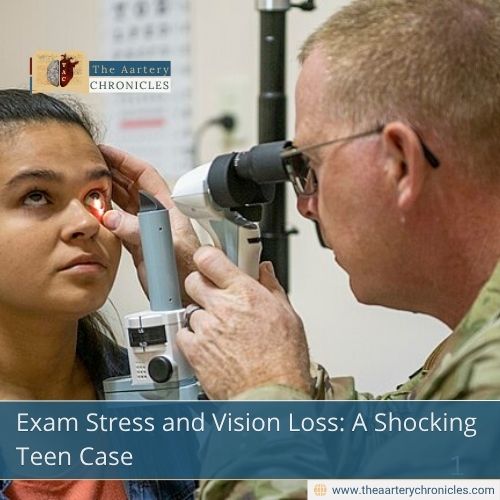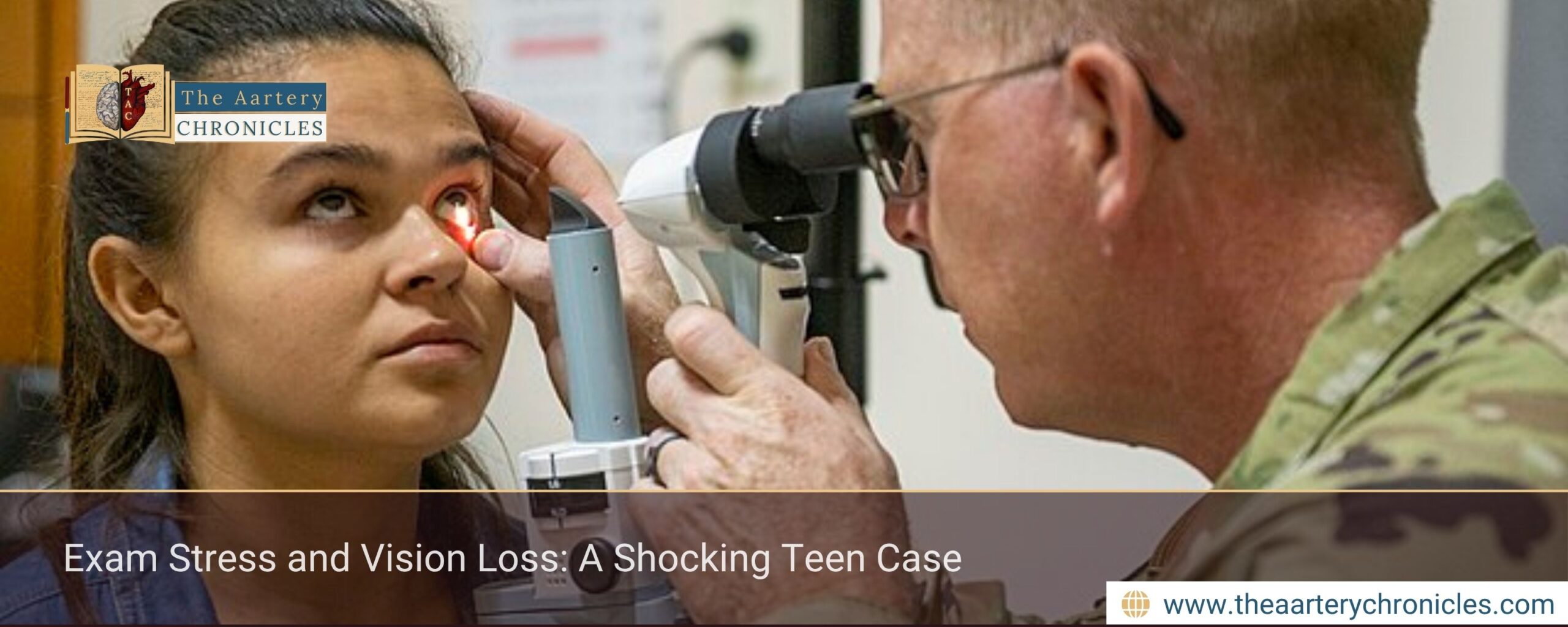

Exam Stress and Vision Loss: A Shocking Teen Case
A 16-year-old student in India was rushed to the emergency room after suddenly losing his vision in both eyes. He could only perceive light but could not see any shapes or objects. What puzzled doctors was that all eye tests showed his eyes were completely healthy. After a series of detailed evaluations, the surprising reason behind his sudden blindness turned out to be something non-physical exam stress.
An Unusual Case of Sudden Vision Loss
When the teenager arrived at the hospital, he was understandably anxious. He insisted that he could not see anything apart from light. However, on examination, the doctors found that his eye structure was normal. Tests, including visual evoked potentials (VEP), optokinetic nystagmus (OKN), and pupil reactions, all came back normal, confirming that his visual system was functioning perfectly.
Because of these results, the medical team began to suspect a rare cause that wasn’t linked to a physical problem in the eyes or brain.
Malingering vs. Functional Vision Loss
At first, the doctors considered the possibility of malingering, a term used to describe the intentional exaggeration or fabrication of symptoms for personal gain, for instance, avoiding school, work, or responsibilities.
However, malingering is not a medical or psychiatric disorder; it’s a behaviour. According to the DSM-5 (Diagnostic and Statistical Manual of Mental Disorders, Fifth Edition), malingering involves consciously pretending to have an illness to obtain an external benefit, such as skipping exams, avoiding military service, or getting medical leave.
But in this boy’s case, something didn’t fit. His distress seemed genuine, and there was no sign that he was faking the condition deliberately.
How Exam Stress Can Affect Vision
Further psychological evaluation revealed that the teenager was under intense exam-related stress, which triggered a condition known as functional (non-organic) vision loss. This condition is not caused by eye disease or nerve damage. Instead, it results from the brain’s response to extreme emotional or psychological pressure.
In simple terms, the stress of exams had temporarily disrupted the way his brain processed visual information, even though his eyes were healthy.
Recovery with Counselling and Support
Once the underlying stress was identified, the boy received counselling and supportive therapy to manage his anxiety. Within two weeks, his vision completely returned to normal.
This case highlights the close connection between the mind and body, particularly how emotional stress can manifest as physical symptoms. It also emphasises that exam stress and vision loss can be connected, though the loss is typically temporary and reversible with proper psychological care.
Conclusion
Functional vision loss may sound alarming, but it serves as a reminder that our mental well-being plays a crucial role in maintaining physical health. Students and parents should take exam stress seriously, ensuring young people have healthy coping strategies such as balanced study routines, regular breaks, open communication, and professional help when needed.
When stress overwhelms the brain, even something as vital as vision can be temporarily affected. With early recognition, emotional support, and therapy, recovery is not only possible but often complete.
Exam stress and vision loss are more closely linked than most realise. The eyes may be healthy, but the brain, under stress, can momentarily “turn off” the sense of sight.
Source: Inputs from various media Sources
I’m a pharmacist with a strong background in health sciences. I hold a BSc from Delhi University and a pharmacy degree from PDM University. I write articles and daily health news while interviewing doctors to bring you the latest insights. In my free time, you’ll find me at the gym or lost in a sci-fi novel.
- Priya Bairagi
- Health News and Updates,People Forum
- 13 October 2025
- 13:00








